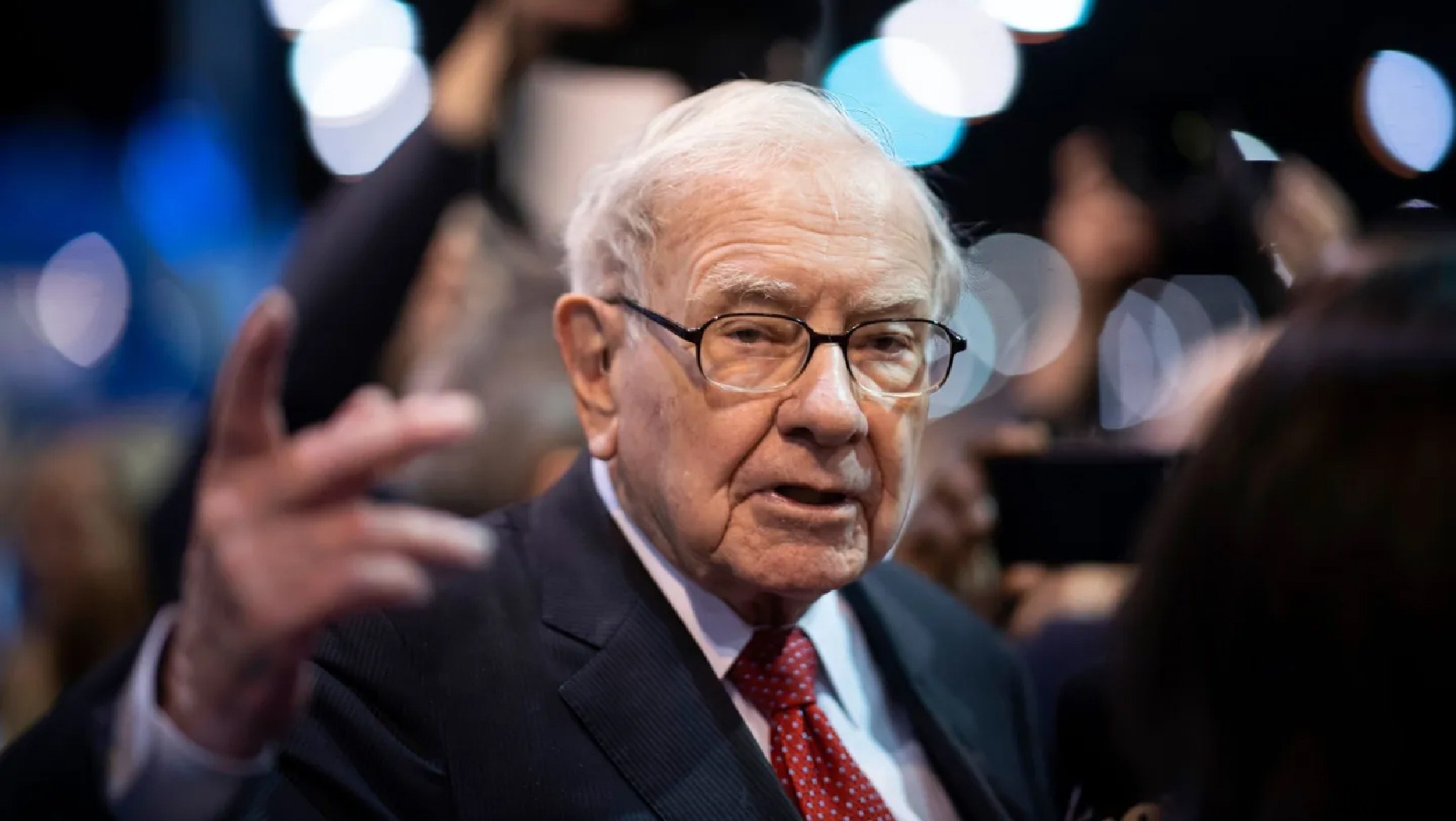Warren Buffett, often hailed as the “Oracle of Omaha,” is one of the most successful and influential investors of all time. His investment strategies and principles have not only built Berkshire Hathaway into a financial powerhouse but also provided a roadmap for countless investors aiming to replicate his success. Understanding Warren Buffett’s investment strategies is crucial for anyone looking to navigate the complexities of the financial markets effectively.
This article provides an in-depth exploration of Warren Buffett’s investment philosophies, key strategies, famous investments, and the lessons modern investors can learn from his approach. Whether you’re a novice investor or a seasoned veteran, there’s something to learn from Buffett’s time-tested wisdom.
Who is Warren Buffett?
Warren Edward Buffett was born on August 30, 1930, in Omaha, Nebraska. From a young age, Buffett demonstrated an extraordinary aptitude for numbers and an insatiable curiosity about business and investing. His entrepreneurial spirit was evident early on, with ventures like selling chewing gum and delivering newspapers.
Buffett’s formal education included a stint at the Wharton School of the University of Pennsylvania, followed by a degree in business administration from the University of Nebraska. However, it was his time at Columbia Business School, studying under Benjamin Graham, the father of value investing, that profoundly shaped his investment philosophy.
In 1965, Buffett took control of Berkshire Hathaway, a struggling textile manufacturing firm. Under his leadership, it transformed into a diversified conglomerate, owning substantial stakes in numerous successful companies across various industries. Today, Berkshire Hathaway is synonymous with successful long-term investing, and Buffett is revered as a financial sage whose insights and strategies are studied worldwide.
Core Principles of Warren Buffett’s Investment Philosophy
Value Investing
One of the cornerstone principles of Warren Buffett’s investment strategy is value investing, a concept he inherited from his mentor, Benjamin Graham. Value investing involves identifying undervalued companies with strong fundamentals and buying their stocks at a price lower than their intrinsic value. This approach requires meticulous analysis and a deep understanding of the business.
Buffett prefers companies with a durable competitive advantage, which he refers to as an “economic moat.” These companies are often industry leaders with strong brand recognition, loyal customers, and the ability to generate consistent profits. By purchasing stocks of such companies at a discount, Buffett aims to achieve substantial returns when the market eventually recognizes their true value.
Long-Term Perspective
Buffett’s investment horizon is notably long-term. He famously quipped, “Our favorite holding period is forever.” This long-term perspective allows him to ride out short-term market fluctuations and focus on the fundamental performance of his investments.
This strategy is evident in his investments in companies like Coca-Cola and American Express, which he has held for decades. By maintaining a long-term outlook, Buffett can capitalize on the power of compound interest and the growth of high-quality businesses over time.
Understanding Businesses
Buffett’s mantra is to invest in what he understands. He avoids businesses that are outside his realm of expertise, no matter how attractive they may appear. This principle ensures that he can accurately assess the risks and opportunities associated with his investments.
Key Strategies Employed by Warren Buffett
Economic Moats
An integral part of Warren Buffett’s investment strategy is identifying companies with economic moats. An economic moat refers to a company’s ability to maintain competitive advantages over its competitors to protect its long-term profits and market share.
Buffett looks for companies with strong brand identities, unique products or services, significant market share, or cost advantages that are difficult for competitors to replicate. These features help the company to sustain profitability and fend off competition over the long term.
Examples of Economic Moats:
- Coca-Cola: With its globally recognized brand and extensive distribution network, Coca-Cola enjoys a significant competitive edge.
- American Express: The company benefits from a robust brand reputation and a vast network of loyal customers.
- Moody’s: As a leading credit rating agency, Moody’s has established a strong presence that is hard to challenge.
Margin of Safety
The concept of the margin of safety is another critical strategy employed by Buffett, also derived from Benjamin Graham. This principle involves buying securities when they are priced significantly below their intrinsic value, providing a cushion against errors in analysis or market downturns.
By insisting on a substantial margin of safety, Buffett minimizes the risk of losing capital. This conservative approach has helped him achieve consistent returns and avoid significant losses.
Focus on Fundamentals
Buffett is a staunch advocate of fundamental analysis. He thoroughly examines a company’s financial statements, looking at key metrics such as earnings, debt levels, profit margins, and return on equity. This rigorous analysis helps him to assess the true value of a company and its future growth potential.
Key Financial Metrics Buffett Focuses On:
- Earnings per Share (EPS): Indicates the company’s profitability.
- Debt-to-Equity Ratio: Measures financial leverage and risk.
- Return on Equity (ROE): Assesses the company’s efficiency in generating profits from shareholders’ equity.
- Profit Margins: Shows how efficiently a company is being run.
Examples of Fundamental Analysis:
| Company | Metric | Value | Buffett’s Interpretation |
| Coca-Cola | EPS | $2.09 (2023) | Strong profitability. |
| Apple | ROE | 73.6% (2023) | High efficiency in generating returns. |
| American Express | Profit Margin | 18.4% (2023) | Good operational efficiency. |
Famous Investments by Warren Buffett
Coca-Cola
One of Warren Buffett’s most iconic investments is in Coca-Cola. In 1988, Buffett began purchasing Coca-Cola stock, eventually acquiring a substantial stake in the company. His investment was driven by Coca-Cola’s powerful brand, its global distribution network, and its consistent ability to generate profits.
Reasons for Investing in Coca-Cola:
- Strong Brand Identity: Coca-Cola is one of the most recognized brands worldwide.
- Consistent Earnings: The company has a history of generating stable and predictable earnings.
- Global Reach: Coca-Cola’s extensive distribution network ensures its products are available globally.
Outcome: Buffett’s investment in Coca-Cola has yielded significant returns, demonstrating the success of his long-term investment strategy.
Apple
Another notable investment is Buffett’s purchase of Apple shares. Initially hesitant to invest in technology companies, Buffett changed his stance in 2016, recognizing Apple’s strong brand loyalty, robust ecosystem, and impressive financial performance.
Reasons for Investing in Apple:
- Brand Loyalty: Apple enjoys a dedicated customer base.
- Innovative Products: Continuous innovation keeps Apple ahead of competitors.
- Financial Strength: Apple has strong financial metrics, including high ROE and significant cash reserves.
Outcome: Apple’s stock has surged since Buffett’s initial purchase, making it one of the most profitable investments for Berkshire Hathaway.
American Express
Buffett’s relationship with American Express dates back to the 1960s when he first invested in the company following the “Salad Oil Scandal.” Despite the controversy, Buffett saw the underlying value in American Express’s brand and business model.
Reasons for Investing in American Express:
- Resilient Brand: Strong reputation and customer loyalty.
- Lucrative Business Model: High fees from cardholders and merchants.
- Growth Potential: Opportunities for expansion in financial services.
Outcome: American Express has provided consistent returns and remains a core holding in Berkshire Hathaway’s portfolio.
Lessons from Warren Buffett for Modern Investors
Importance of Research and Due Diligence
Warren Buffett places a strong emphasis on research and due diligence before making any investment decisions. He advocates for a thorough understanding of the companies one invests in, including their business models, financial health, industry position, and competitive advantages.
Steps for Conducting Due Diligence:
- Analyze Financial Statements: Review the company’s income statement, balance sheet, and cash flow statement to understand its financial health.
- Understand the Business Model: Know how the company makes money and what its primary revenue streams are.
- Evaluate Management: Assess the competence and integrity of the company’s leadership.
- Examine Competitive Position: Identify the company’s competitors and its market share.
- Identify Risks: Understand potential risks that could impact the company’s performance.
Tools for Effective Research:
- Financial Reports: Annual and quarterly reports provide detailed financial data.
- Industry Analysis: Reports and analyses from industry experts.
- Market News: Staying updated with news about the company and its industry.
- Investment Platforms: Using platforms like Morningstar and Yahoo Finance for comprehensive data.
Staying Disciplined
Discipline is a cornerstone of Buffett’s investing strategy. He stresses the importance of maintaining a disciplined approach to investing, regardless of market conditions. This involves sticking to your investment principles and not succumbing to market hype or fear.
Keys to Staying Disciplined:
- Have a Clear Strategy: Define your investment strategy and stick to it.
- Avoid Emotional Decisions: Don’t let emotions drive your investment choices.
- Be Patient: Successful investing often requires a long-term perspective.
- Diversify: Spread investments across different sectors to minimize risk.
Buffett’s disciplined approach is exemplified by his investment in Coca-Cola, where he remained committed to his investment despite short-term market volatility.
Click Here and Read More previous Blogs Tesla Cybertruck wrap
The Role of Patience
Patience is perhaps the most emphasized virtue in Buffett’s investment philosophy. He believes that time is the friend of the wonderful business, highlighting the importance of holding quality investments for the long term.
Benefits of Patience in Investing:
- Compounding Returns: Long-term investments benefit from compound interest.
- Riding Out Volatility: Patience allows investors to weather short-term market fluctuations.
- Identifying True Value: Time helps reveal the true value of investments as businesses grow.
Quotes from Warren Buffett on Patience:
- “The stock market is designed to transfer money from the Active to the Patient.”
- “Time is the friend of the wonderful company, the enemy of the mediocre.”
Real-life examples include Buffett’s long-term holdings in companies like American Express and Coca-Cola, which have paid off handsomely over decades.
Criticisms and Challenges of Buffett’s Strategies
Limitations of Value Investing
While value investing has been highly successful for Buffett, it’s not without its criticisms and limitations. Some argue that the traditional value investing model may not be as effective in the modern, technology-driven market.
Criticisms of Value Investing:
- Market Efficiency: In highly efficient markets, undervalued stocks are rare.
- Slow Growth: Value stocks often have slower growth compared to growth stocks.
- Industry Changes: Rapid technological advancements can disrupt industries, making traditional value metrics less reliable.
Adapting Value Investing:
- Incorporate Growth Metrics: Consider growth potential alongside traditional value metrics.
- Stay Updated: Continuously update your investment thesis with new information.
- Flexibility: Be open to investing in sectors with high growth potential.
Adapting to Modern Markets
Buffett’s strategies have evolved over time to adapt to changing market dynamics. While he has remained true to his core principles, he has also demonstrated flexibility and adaptability in his investment approach.
Adapting Strategies:
- Investing in Technology: Initially hesitant, Buffett has made significant investments in tech companies like Apple, recognizing the sector’s potential.
- Global Investments: Expanding beyond the U.S., investing in global companies.
- Embracing Change: Staying informed about market trends and evolving his strategy accordingly.
Examples of Adaptation:
- Apple Investment: Buffett’s investment in Apple marked a significant shift, recognizing the company’s strong brand and financial health despite his previous aversion to tech stocks.
- Global Expansion: Berkshire Hathaway has invested in companies outside the U.S., reflecting a more global investment approach.
Conclusion
Warren Buffett’s investment strategies offer invaluable lessons for investors at all levels. His focus on value investing, economic moats, and fundamental analysis, combined with a long-term perspective and disciplined approach, has led to unparalleled success. However, his willingness to adapt and evolve his strategies in response to changing market dynamics is equally instructive.
By emulating Buffett’s principles and strategies, modern investors can enhance their investment acumen and potentially achieve significant returns. Remember, successful investing is not about quick wins but about building wealth steadily and sustainably over the long term.
Key Takeaways:
- Research and Understand: Thoroughly research and understand the businesses you invest in.
- Stay Disciplined: Maintain a disciplined approach, avoiding emotional and impulsive decisions.
- Be Patient: Invest with a long-term perspective, allowing your investments to grow and compound over time.
- Adapt and Evolve: Stay informed and be willing to adapt your strategies to changing market conditions.
Warren Buffett’s timeless wisdom continues to guide investors, reminding us that the key to successful investing lies in patience, discipline, and a deep understanding of the businesses we choose to invest in.






